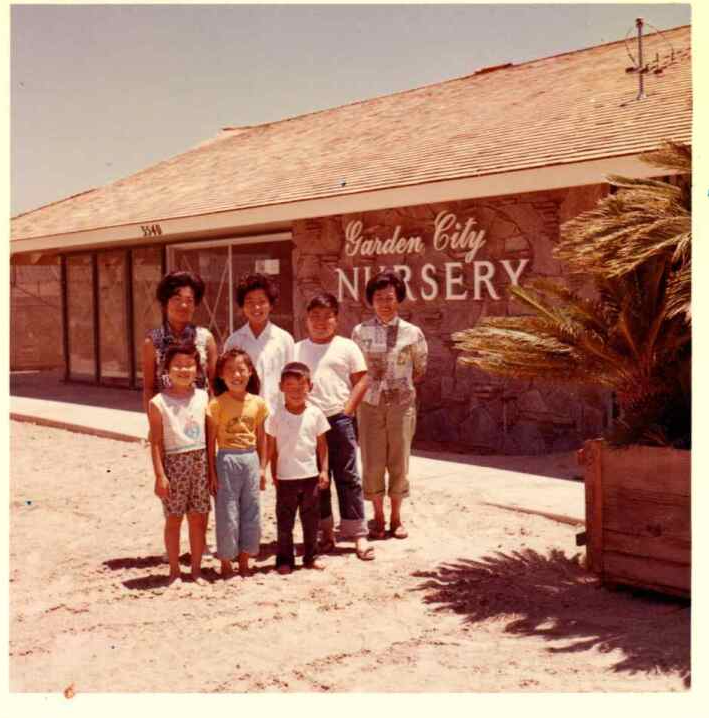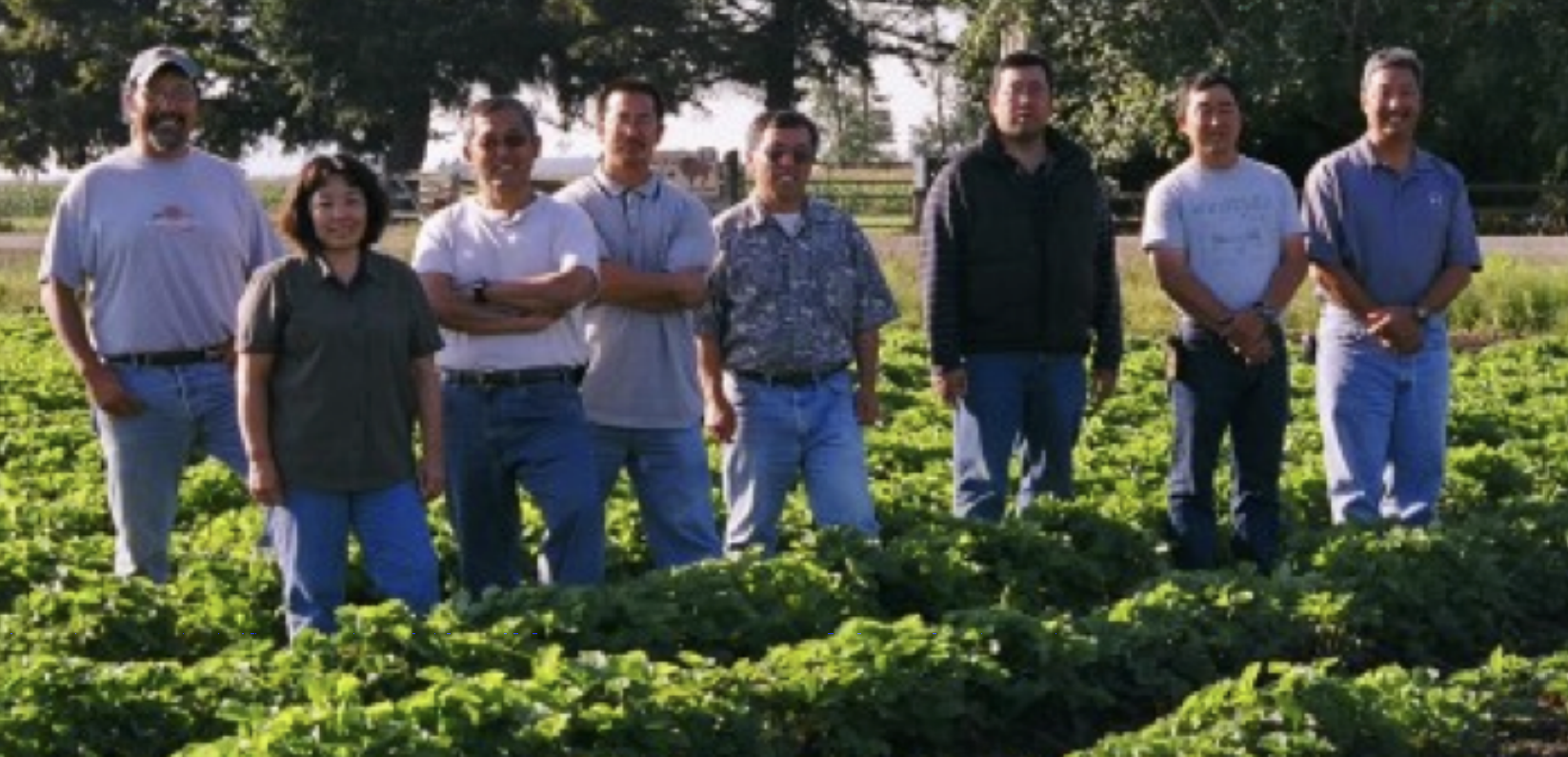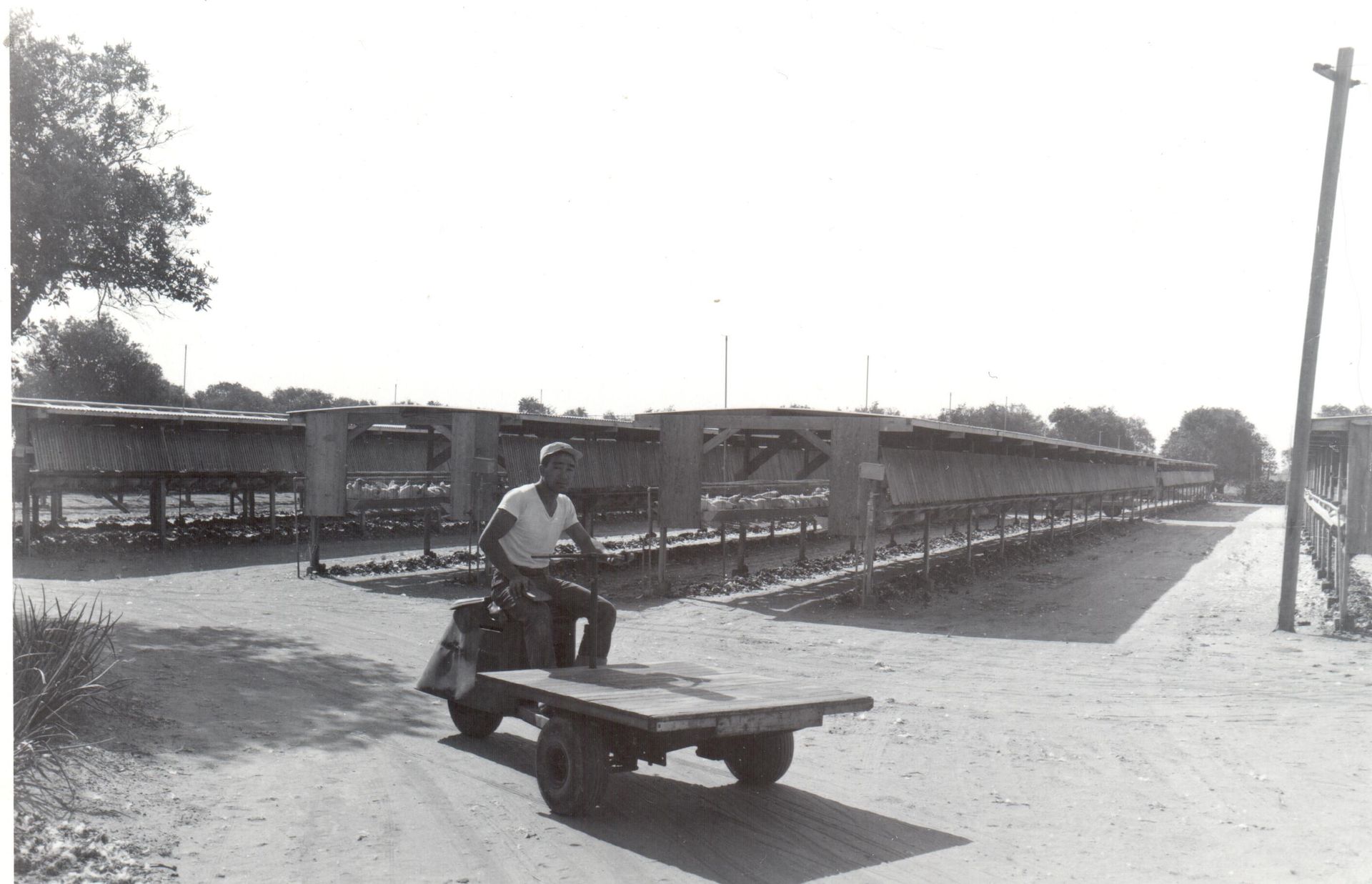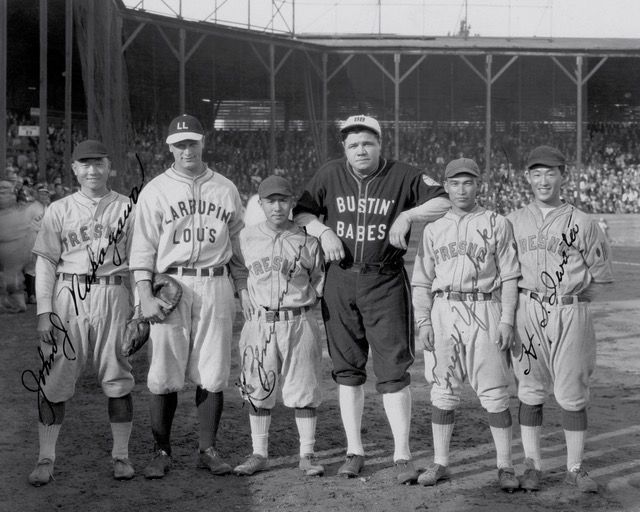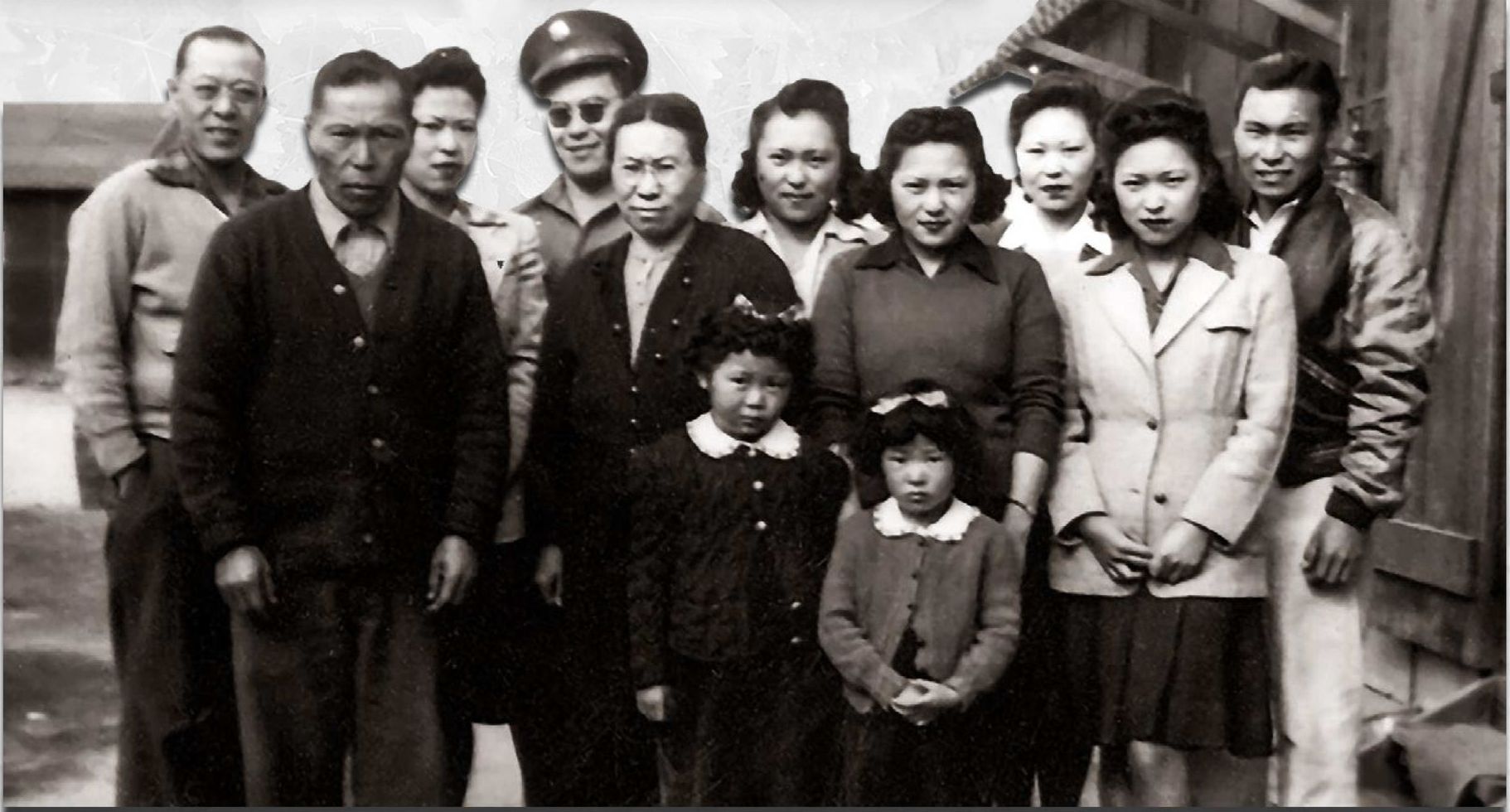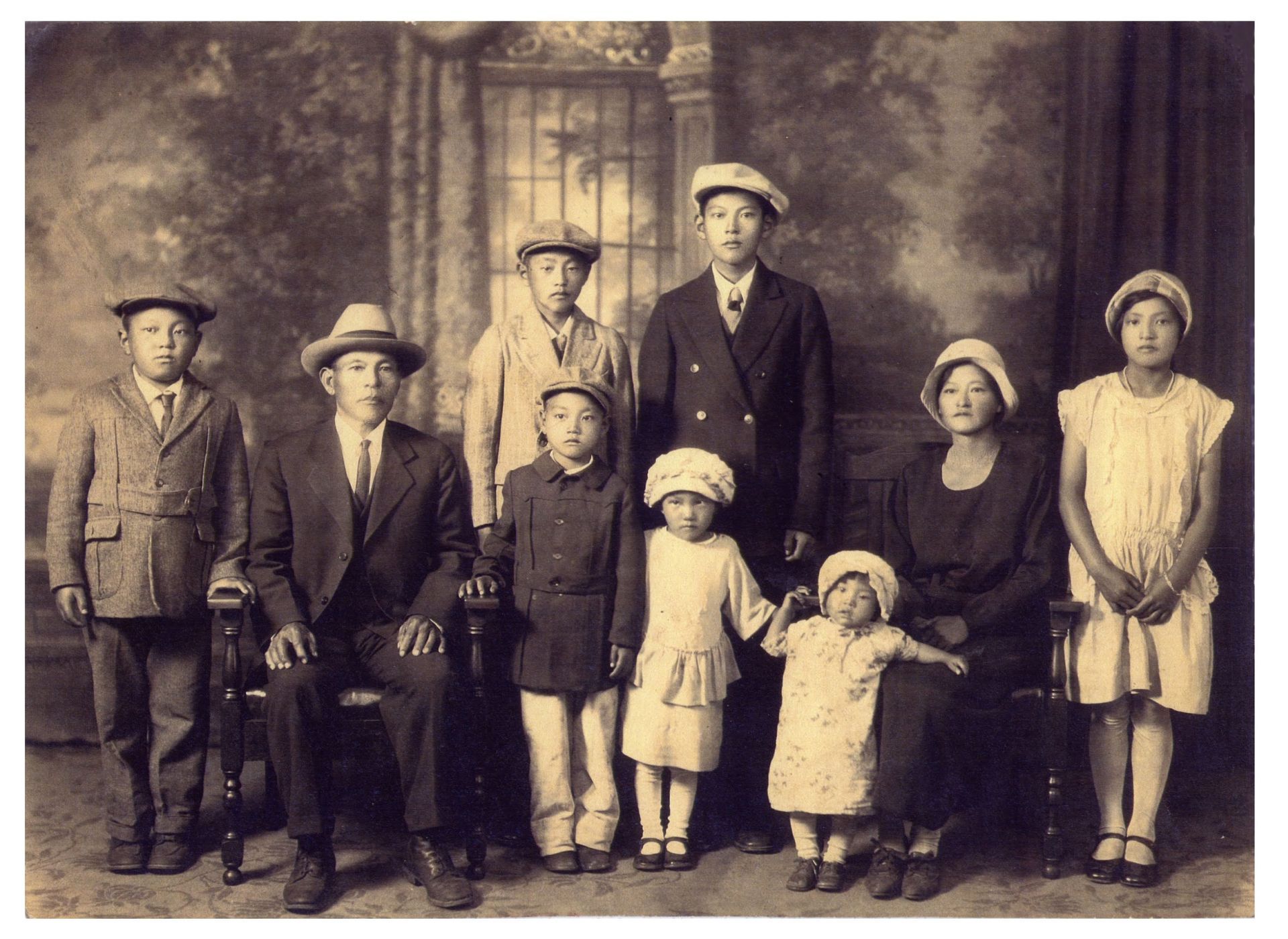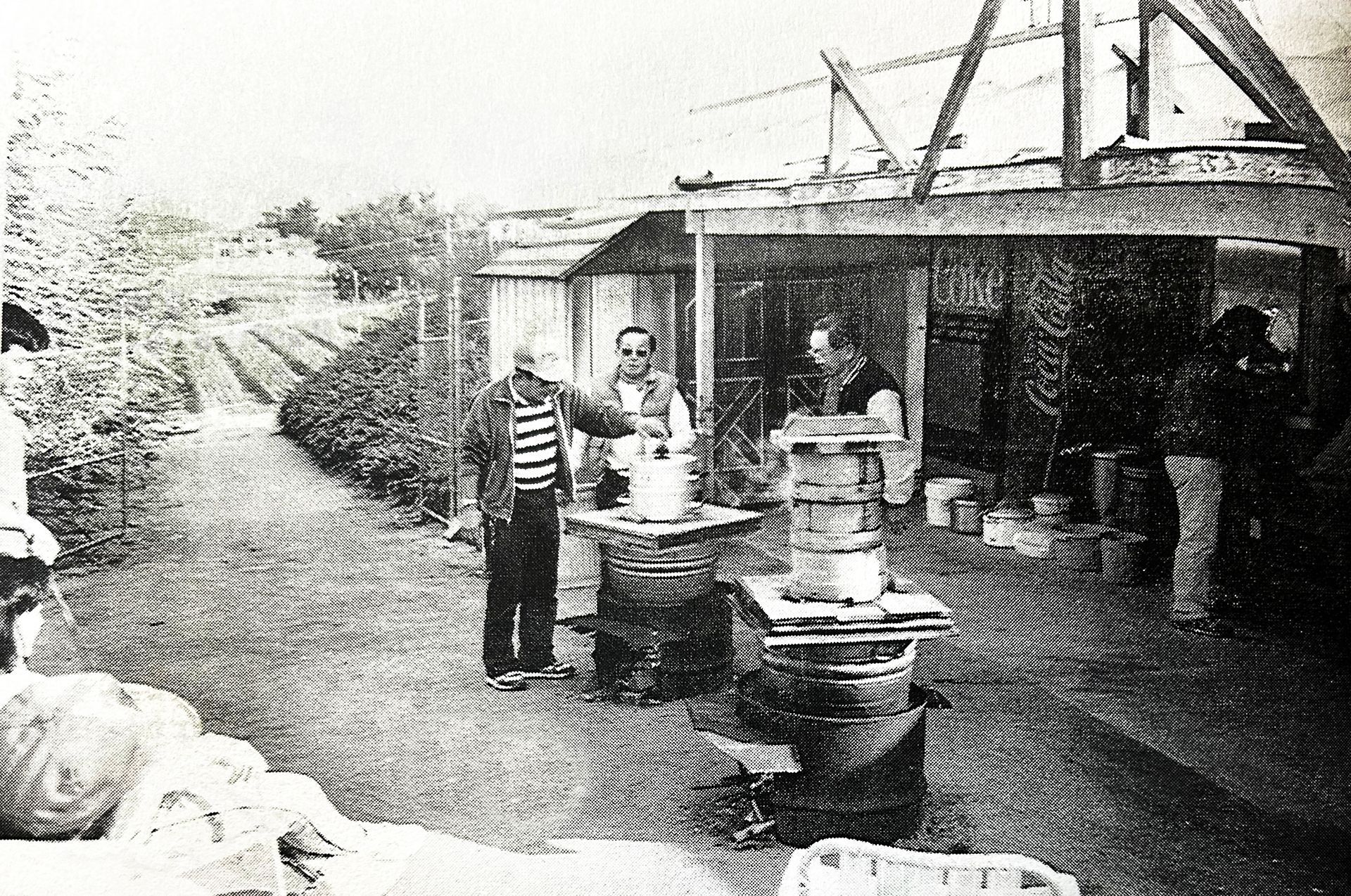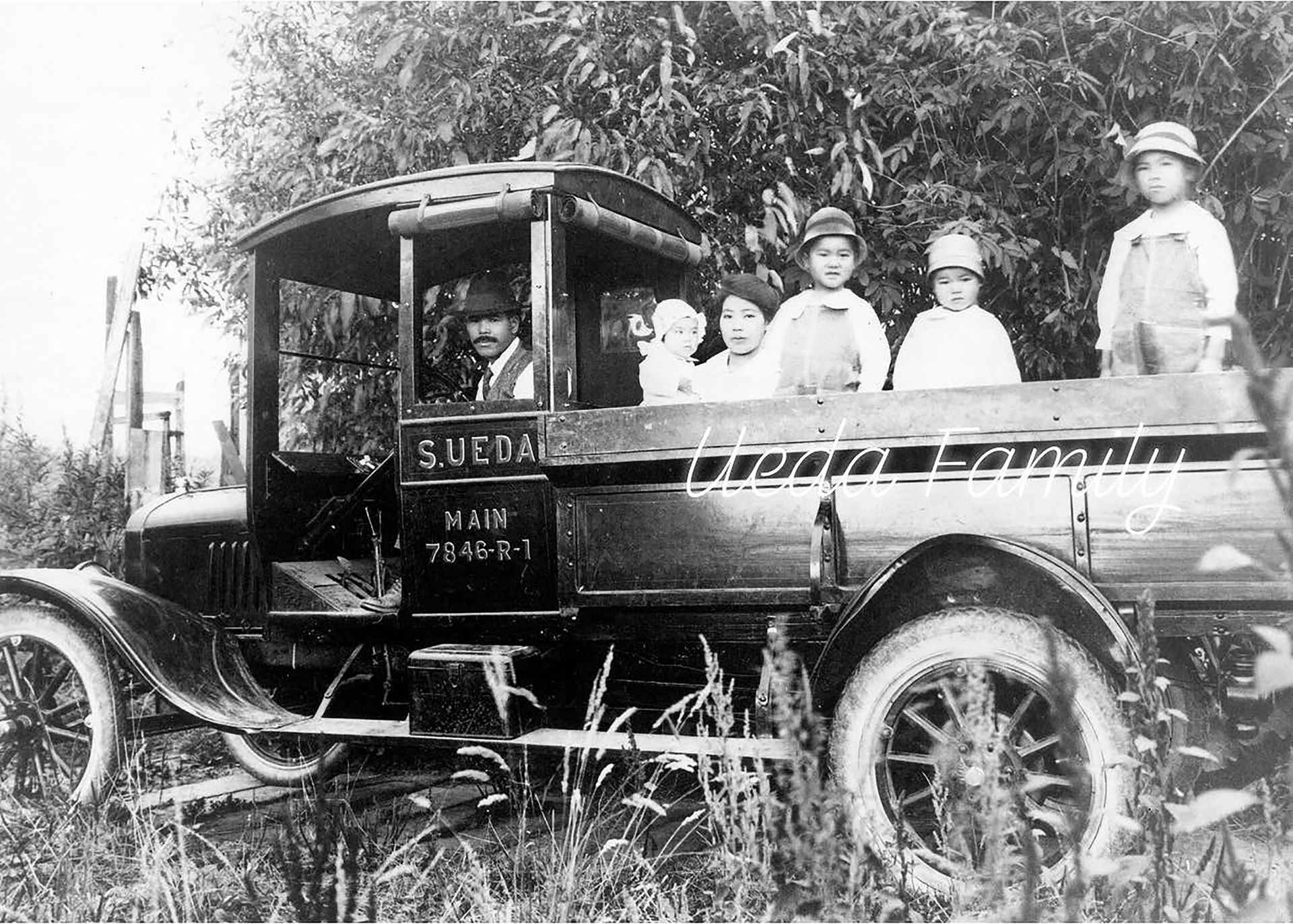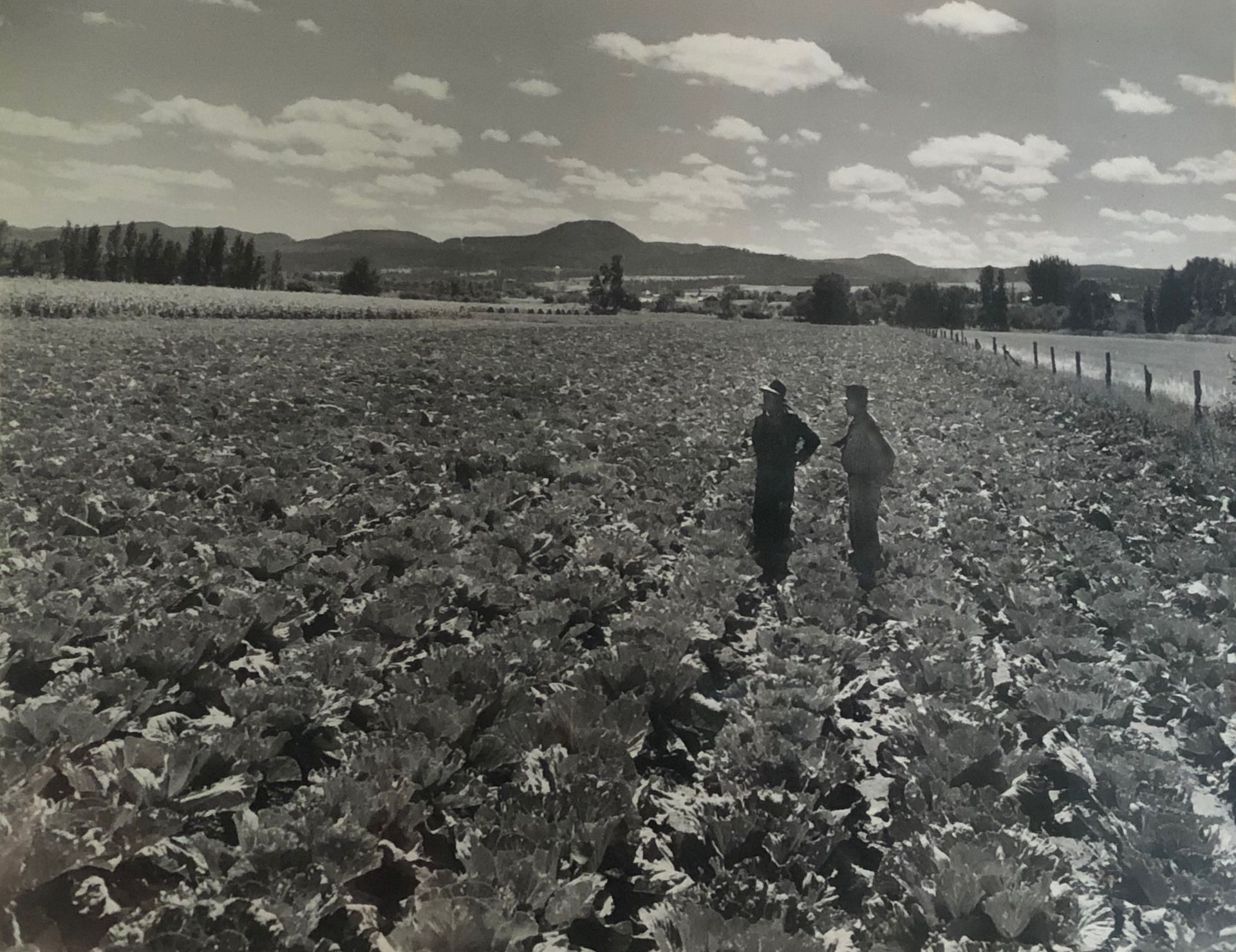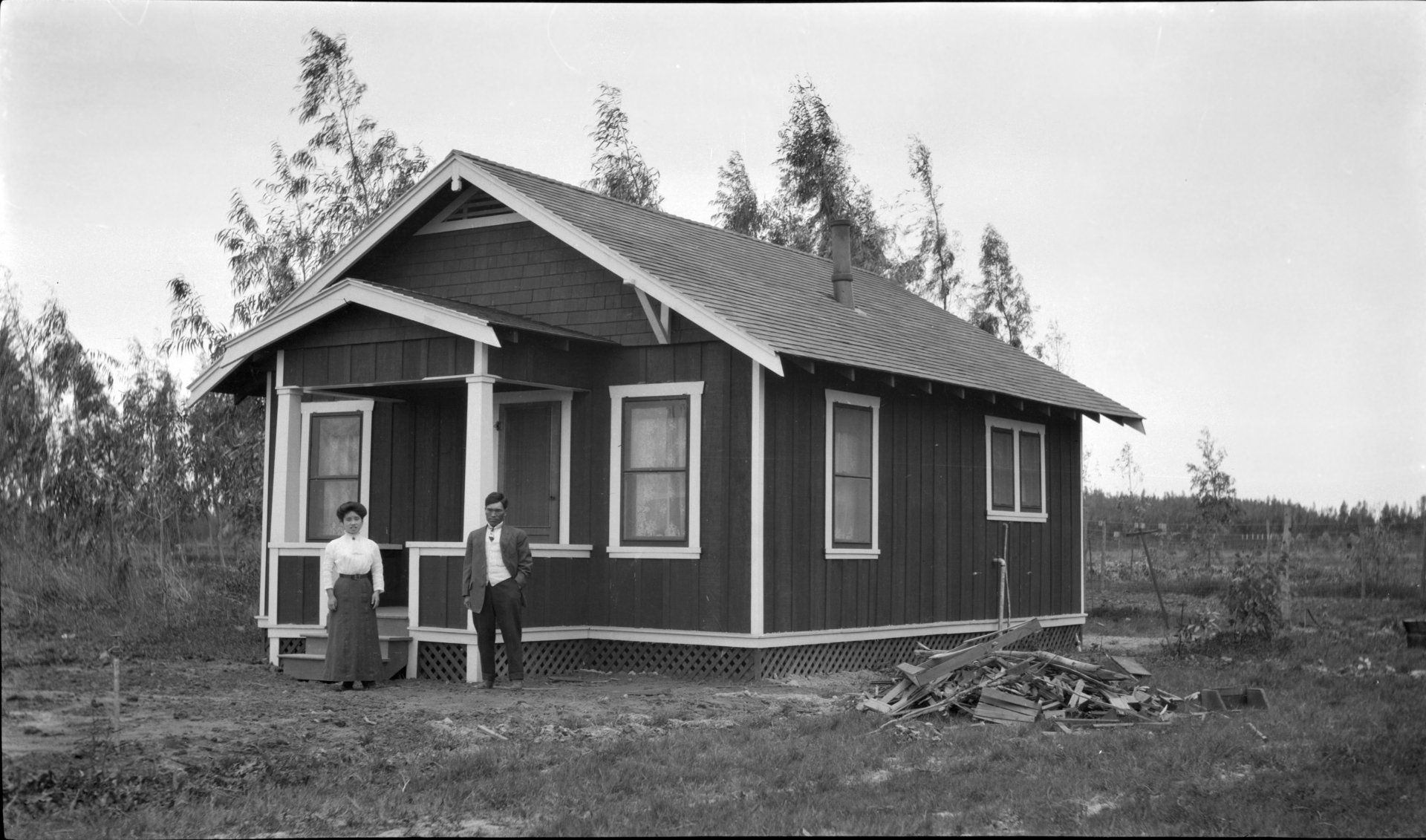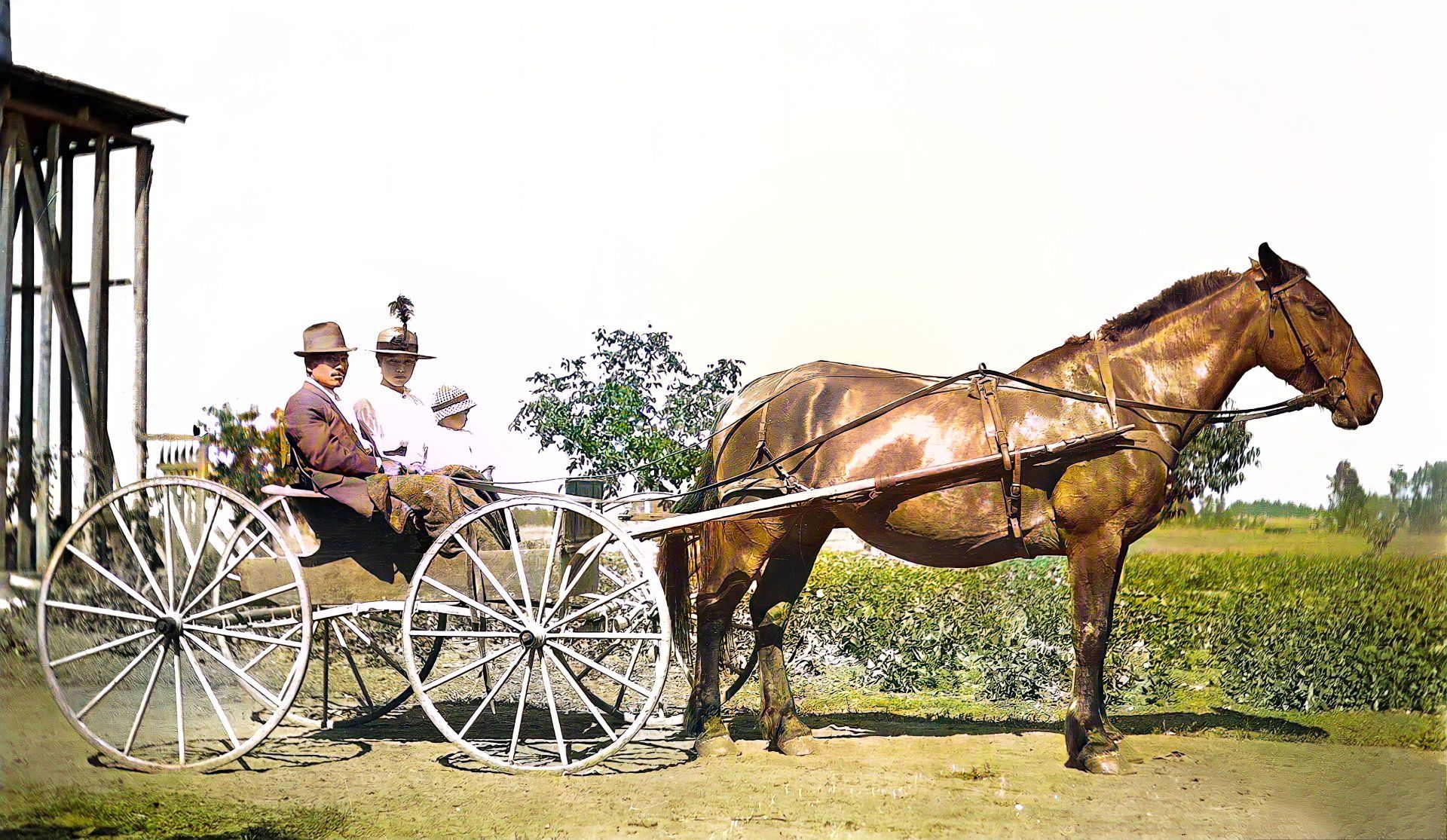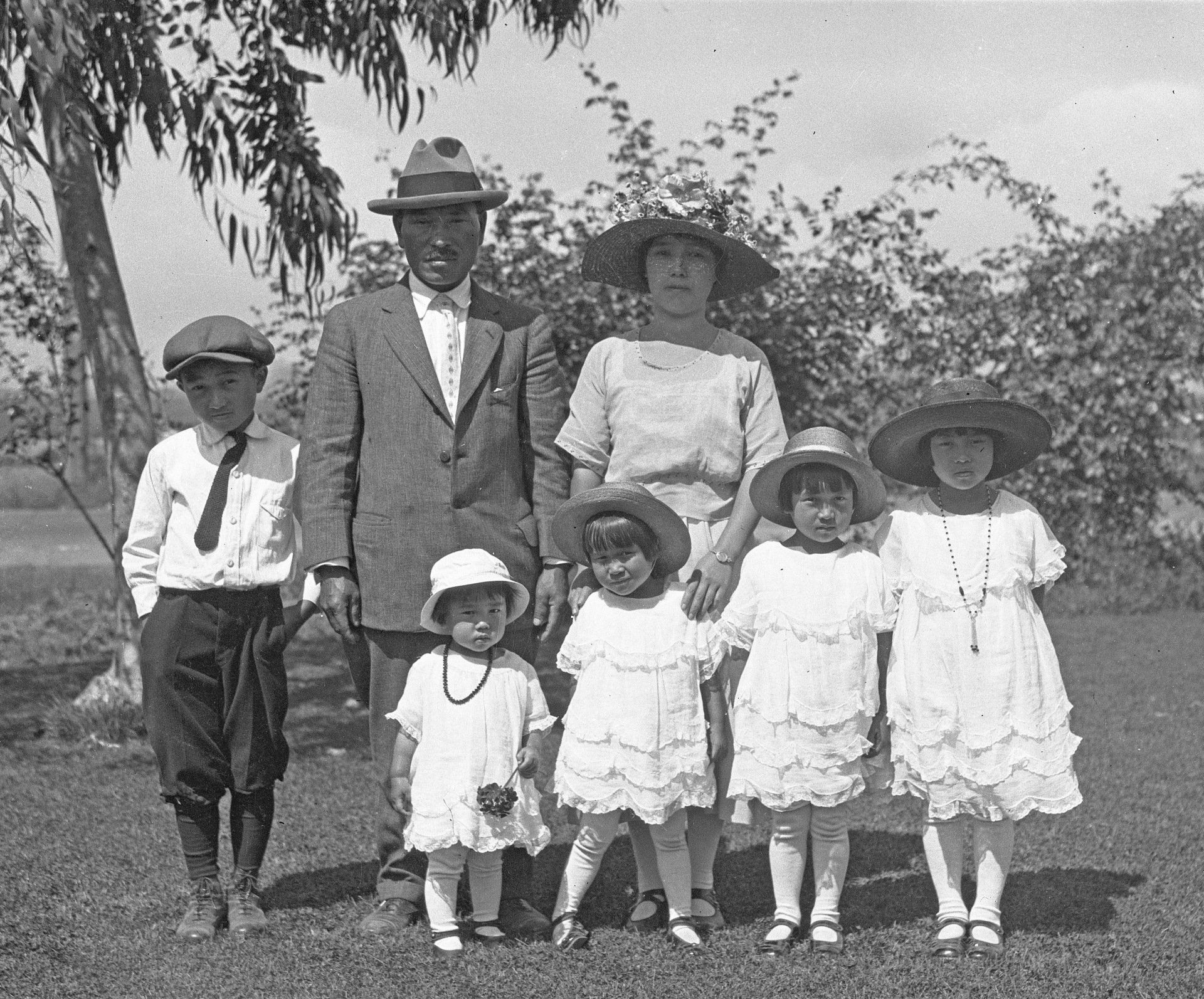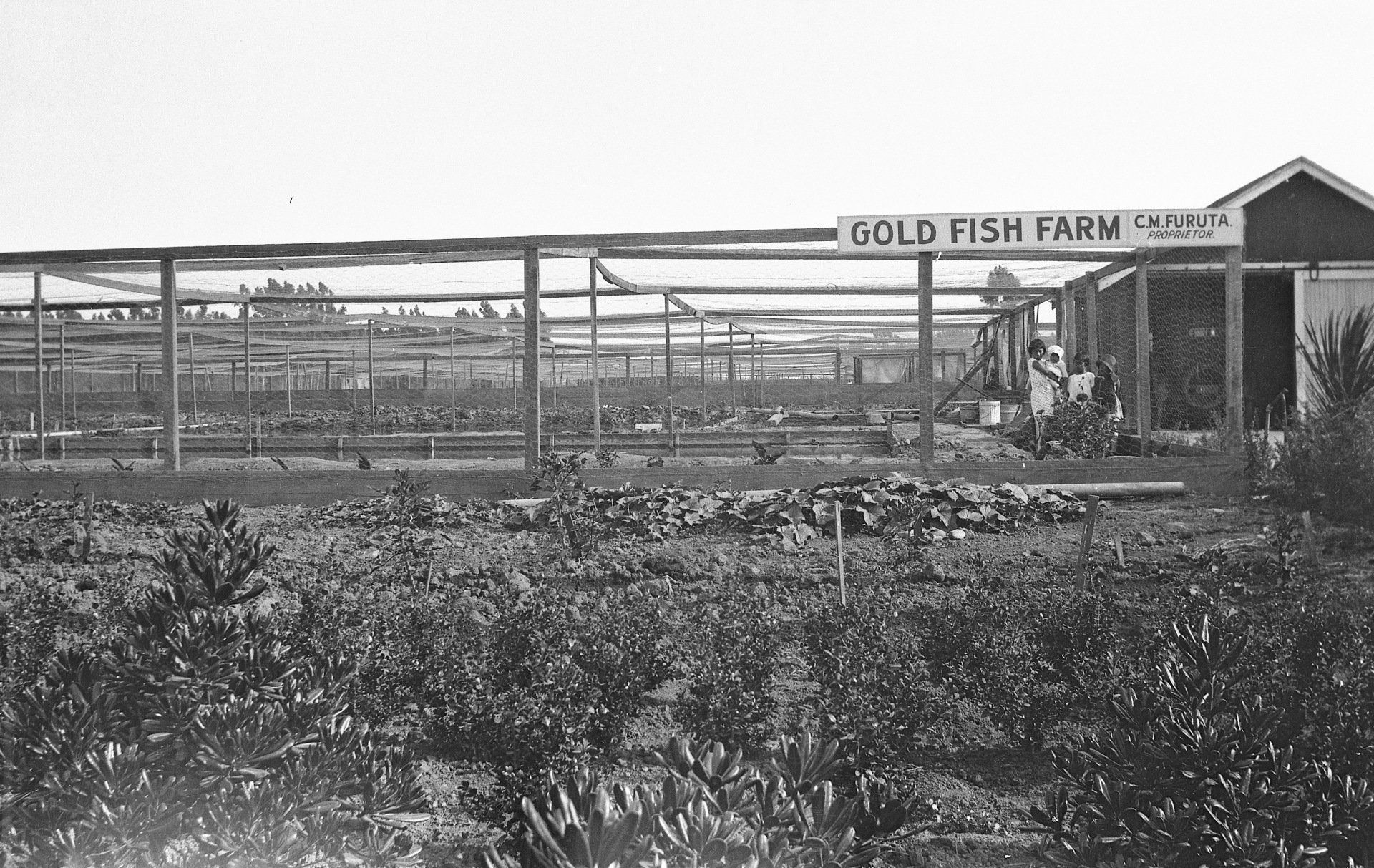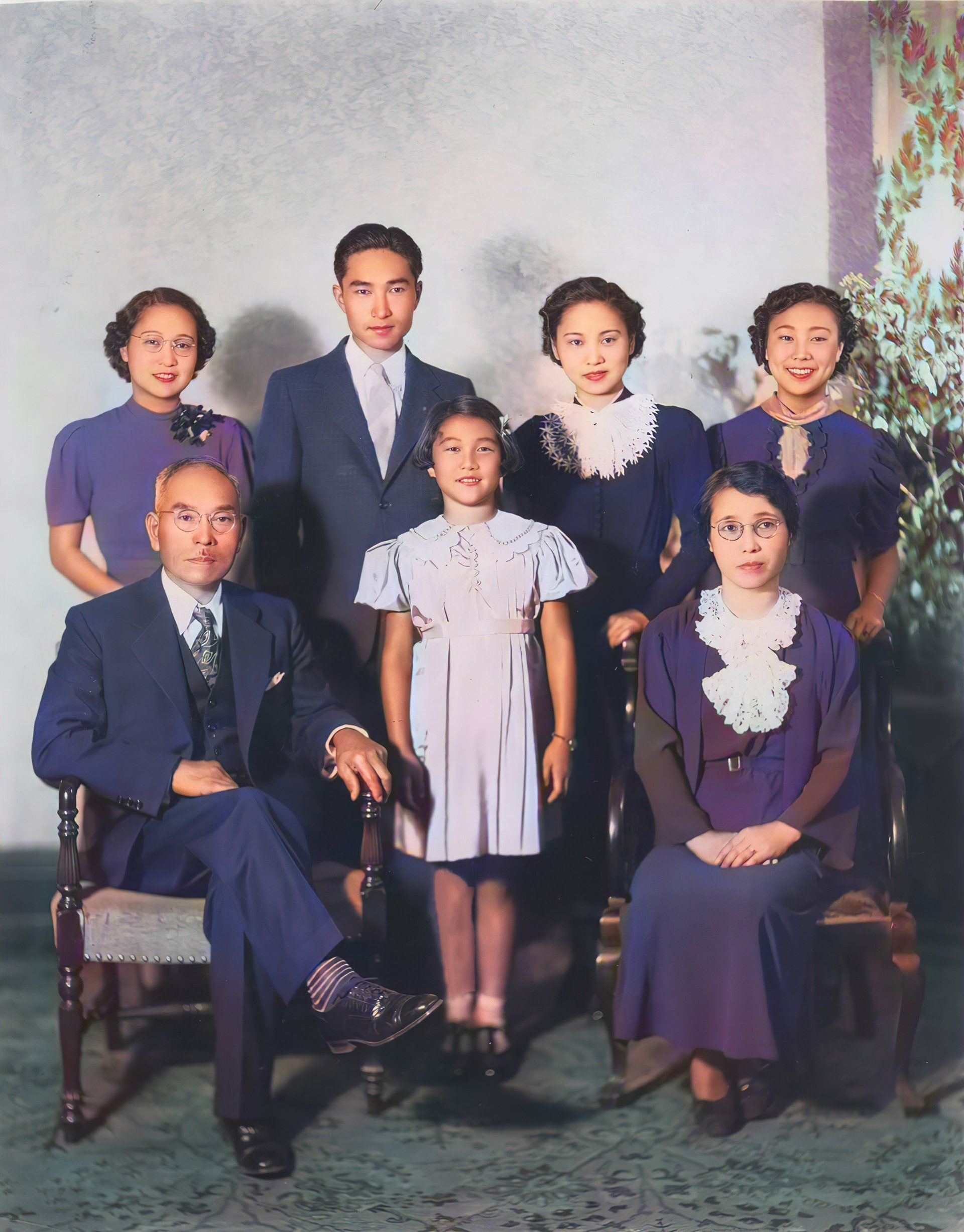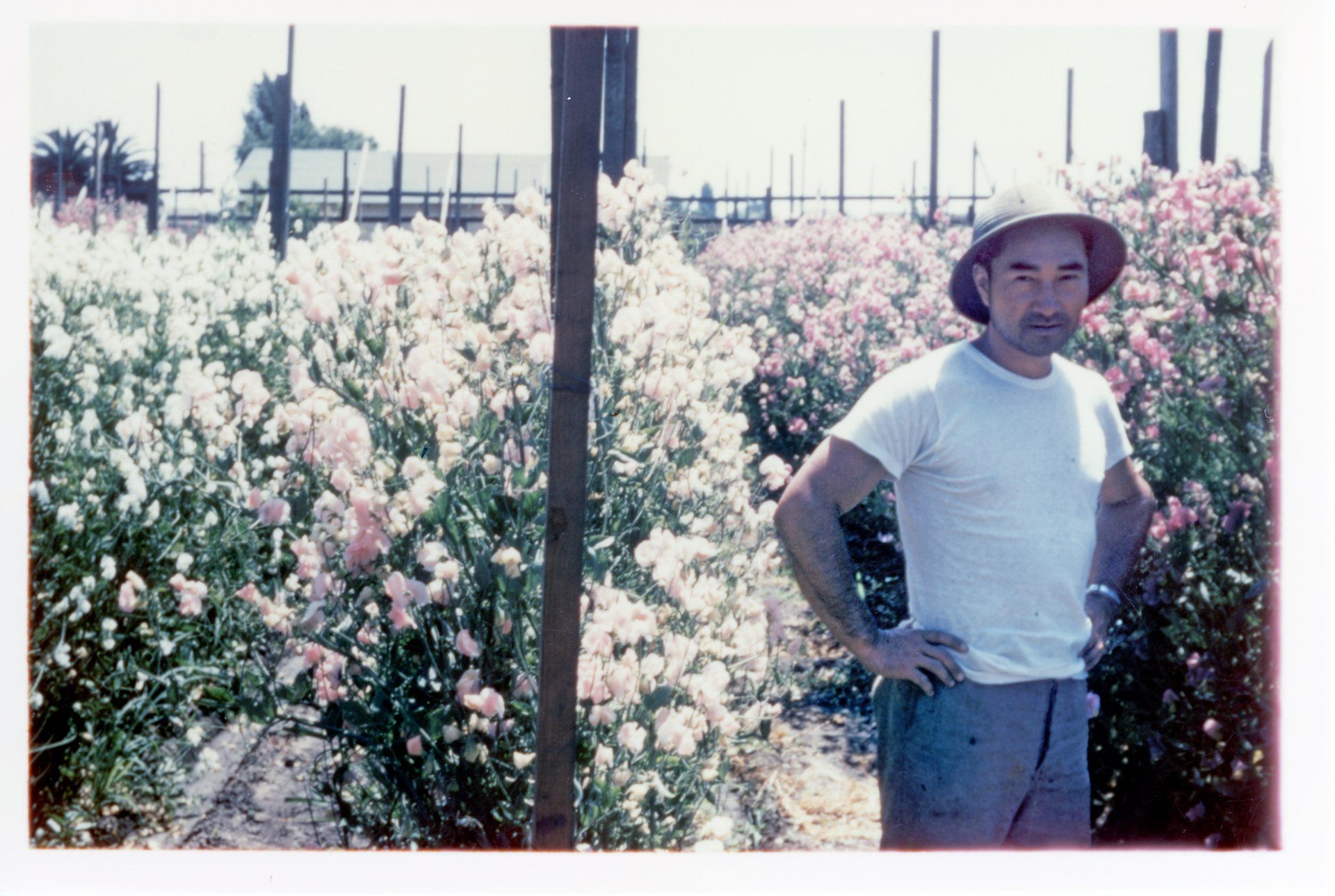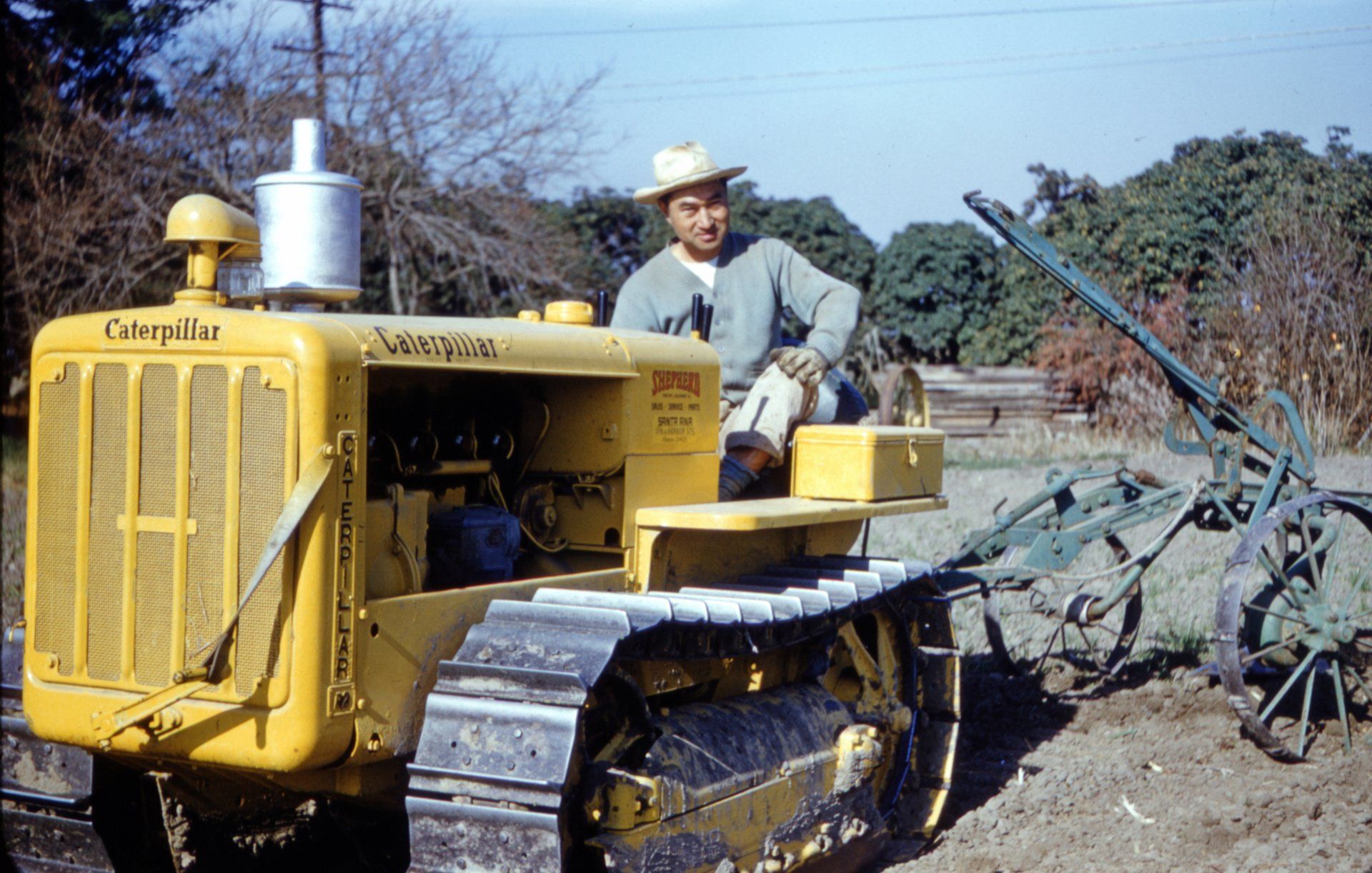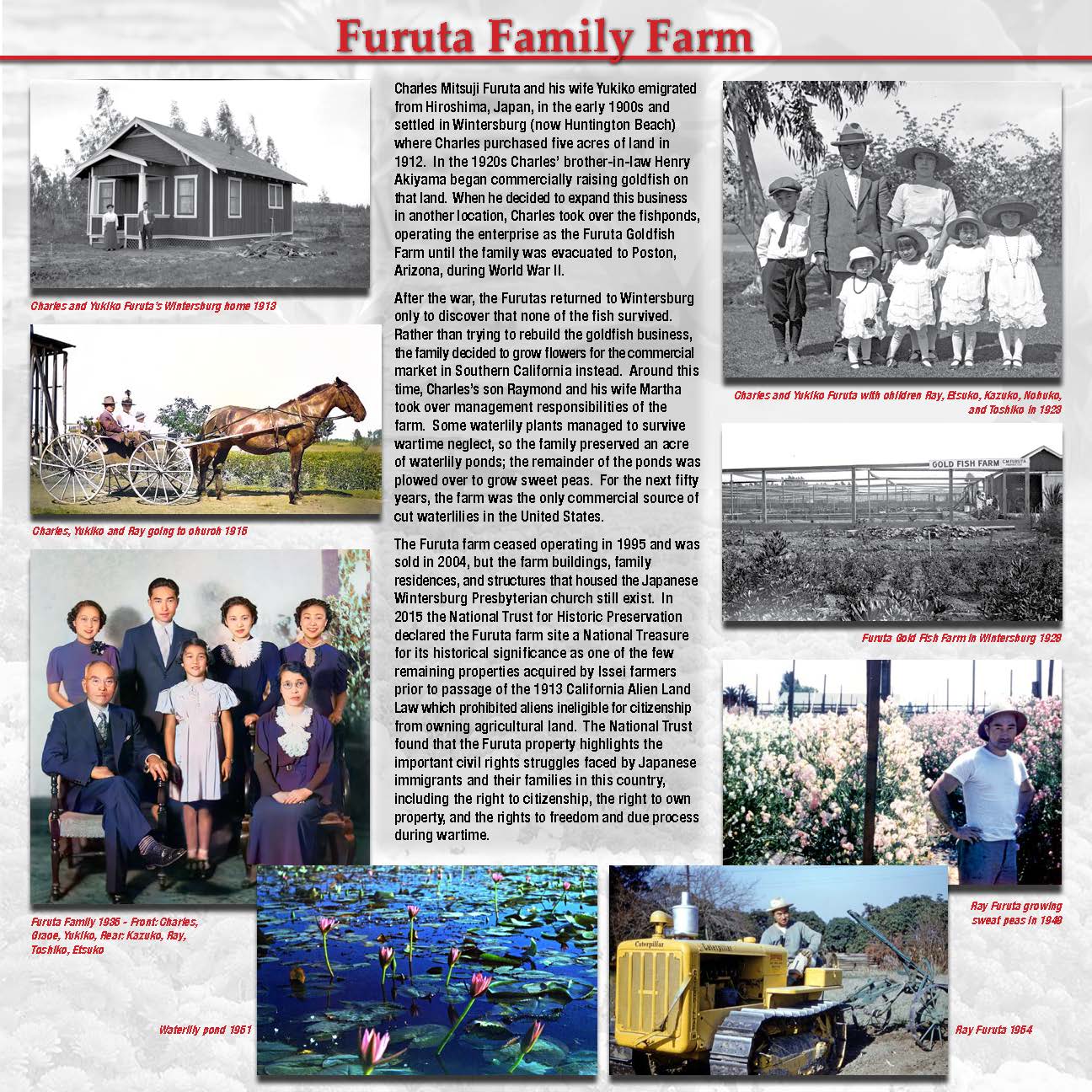Furuta Family Farm
Charles Mitsuji Furuta and his wife Yukiko emigrated from Hiroshima, Japan, in the early 1900s and settled in Wintersburg (now Huntington Beach) where Charles purchased five acres of land in 1912. In the 1920s Charles’ brother-in-law Henry Akiyama began commercially raising goldfish on that land. When he decided to expand this business in another location, Charles took over the fishponds, operating the enterprise as the Furuta Goldfish Farm until the family was evacuated to Poston, Arizona, during World War II.
After the war, the Furutas returned to Wintersburg only to discover that none of the fish survived. Rather than trying to rebuild the goldfish business, the family decided to grow flowers for the commercial market in Southern California instead. Around this time, Charles’s son Raymond and his wife Martha took over management responsibilities of the farm. Some waterlily plants managed to survive wartime neglect, so the family preserved an acre of waterlily ponds; the remainder of the ponds was plowed over to grow sweet peas. For the next fifty years, the farm was the only commercial source of cut waterlilies in the United States.
The Furuta farm ceased operating in 1995 and was sold in 2004, but the farm buildings, family residences, and structures that housed the Japanese Wintersburg Presbyterian church still exist. In 2015 the National Trust for Historic Preservation declared the Furuta farm site a National Treasure for its historical significance as one of the few remaining properties acquired by Issei farmers prior to passage of the 1913 California Alien Land Law which prohibited aliens ineligible for citizenship from owning agricultural land. The National Trust found that the Furuta property highlights the important civil rights struggles faced by Japanese immigrants and their families in this country, including the right to citizenship, the right to own property, and the rights to freedom and due process during wartime.
For more information about the history of the Furuta farm, we recommend the following:
Yukiko Furuta, Interviewed by Arthur A. Hansen and Yasko Gamo, California State University, Fullerton, 1986. In this volume of the Issei Experience in Orange County, California, oral history series, the wife of Charles Furuta tells her story of immigrating from Hiroshima, Japan, to the rural village of Wintersburg in 1912 through the return of her family from evacuation during World War II. The English version of the interview may be accessed here:
https://oac.cdlib.org/view?docId=ft7p3006z0&query=&brand=oac4 .
Historic Wintersburg of Huntington Beach, by Mary Adams Urashima, History Press Library Editions, 2014, provides a detailed history of the Furuta farm and the Wintersburg Presbyterian Church which was located on the corner of that property from 1910 to 1965, as well as the Orange County Japanese American community centered there. She also maintains a very interesting and informative blog dedicated to the preservation of the historic structures associated with this property at http://historicwintersburg.blogspot.com .
The National Trust for Historic Preservation’s website sets forth in detail the historic significance of the Furuta farm and church site at https://savingplaces.org/places/historic-wintersburg . The National Trust also placed the farm site on its 2014 list of America’s 11 most endangered historic places.
Our American Family-The Furutas, a half-hour documentary on the Furuta family’s immigration story narrated by descendants of Charles and Yukiko Furuta as part of the Our American Family series broadcast on PBS stations throughout the nation. Currently available for free viewing through Amazon Prime.
Charles and Yukiko Furuta’s Wintersburg home 1913
Charles, Yukiko and Ray going to church 1915
Charles and Yukiko Furuta with children Ray, Etsuko, Kazuko, Nobuko, and Toshiko in 1923
Furuta Gold Fish Farm in Wintersburg 1928
Furuta Family 1935 - Front: Charles, Grace, Yukiko, Rear: Kazuko, Ray, Toshiko, Etsuko
Ray Furuta growing sweat peas in 1949
Waterlily pond 1951
Ray Furuta 1954
